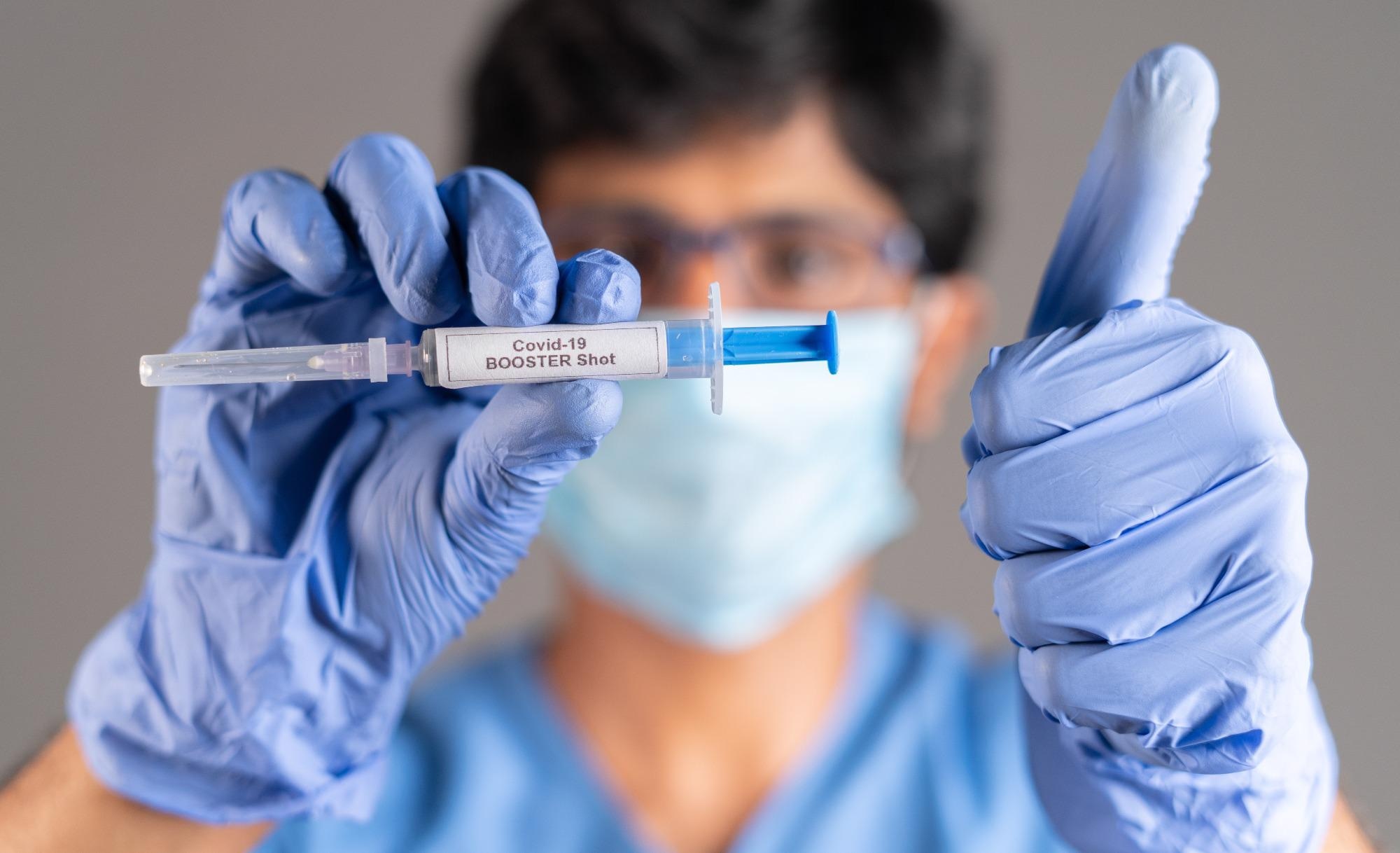
In a recent study published in the Nature Medicine journal, the researchers assessed the effectiveness of a second booster dose of the BioNTech, Pfizer BNT162b2 vaccine against coronavirus disease 2019 (COVID-19) severity in elderly patients.
Various studies have reported the waning effectiveness of severe acute respiratory syndrome coronavirus 2 (SARS-CoV-2) vaccines, suggesting the need for booster dose administration. However, with the increasing number of breakthrough infections among triple-vaccinated individuals, research is essential to understand the aspects of the second booster dose.
 Study: Effectiveness of a second BNT162b2 booster vaccine against hospitalization and death from COVID-19 in adults aged over 60 years. Image Credit: WESTOCK PRODUCTIONS / Shutterstock
Study: Effectiveness of a second BNT162b2 booster vaccine against hospitalization and death from COVID-19 in adults aged over 60 years. Image Credit: WESTOCK PRODUCTIONS / Shutterstock
About the study
The present study examined the impact of a second COVID-19 booster dose vaccination on COVID-19-related hospitalizations and mortality among individuals aged 60 years and older.
The team obtained relevant data from the electronic medical records of the Clalit Health Services (CHS). This data was compiled by the CHS from two sources, namely, the primary care operational and COVID-19 databases.
The study group comprised all members of the CHS who were aged between 60 and 100 years and were eligible to receive their second booster vaccine dose. The study period started on 3 January 2022, while the follow-up period lasted between 10 January 2022 and 20 February 2022, which was the last reported case of COVID-19 mortality. Notably, the SARS-CoV-2 Omicron B.1.1.529 sublineage was the dominant variant in Israel during the study period.
The study population was categorized into two groups: (1) a second-booster group which included those who had received the second booster vaccine dose; and (2) a first-booster group which included individuals who had not received the second booster dose. The participants from the second-booster cohort were included in the cohort seven days after they had received the second booster dose.
The primary outcome of the study included death due to SARS-CoV-2 infection. The team also performed a subgroup analysis based on three age groups: (1) 60 to 69 years; (2) 70 to 79 years; and (3) 80 to 100 years. The secondary outcome of the study included COVID-19-related hospitalizations.
Results
The study included 563,465 eligible participants with a mean age of 73.0 years, among which almost 53% were female. The comorbidities reported most commonly by the study cohort were obesity, hypertension, and diabetes. Moreover, each additional point in the higher socioeconomic status (SES) correlated to an 18% increase in vaccine uptake. Approximately 58% of the total participants were vaccinated with the second booster dose throughout the study period. The vaccine uptake was 49% and 57% higher in the 70 to 79 years and the 80 to 100 years age groups as compared to the individuals aged between 60 to 69 years.
A total of 92 deaths were reported among the second-booster group, while 232 deaths were observed in the first-booster groups. The adjusted hazard ratio (HR) associated with COVID-19-related death among individuals in the second-booster group as compared to those in the first-booster group was 0.22. Moreover, in comparison to individuals aged between 60 to 69 years, an HR of 2.24 was found in the 70 to 70 years age group, and an HR of 9.95 was observed in the 80 to 100 years age group. The factors associated with a higher risk of COVID-19-related death included being a male and having pre-existing conditions like chronic heart failure, chronic obstructive pulmonary disease, diabetes, and stroke.
In the subgroup analysis, the team found that among individuals aged between 60 and 69 years, five deaths occurred in the second-booster group and 32 in the first-booster group. On the other hand, in the 70 to 79 and 80 to 100 years age groups, 22 and 65 deaths occurred in the second-booster group and 51 and 149 in the first-booster group.
The team also observed that among those hospitalized due to COVID-19, 270 were from the second-booster group while 550 were from the first-booster group. Also, as compared to the first-booster groups, the HR for COVID-19 hospitalization in the second-booster group was 0.36. Furthermore, with respect to COVID-19 hospitalizations, compared to adults aged between 60 to 69 years, an HR of 1.82 was found in the 70 to 70 years age group, and an HR of 4.04 was observed in the 80 to 100 years age group. In addition, characteristics associated with a higher risk of COVID-19-related hospitalization included being a male and having pre-existing conditions like chronic heart failure, chronic renal failure, chronic obstructive pulmonary disease, diabetes, hypertension, ischemic heart disease, and stroke.
Overall, the study findings showed that a second booster dose of a COVID-19 vaccine significantly reduced the incidence of severe COVID-19 outcomes in the elderly.